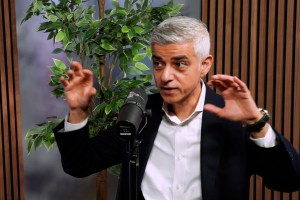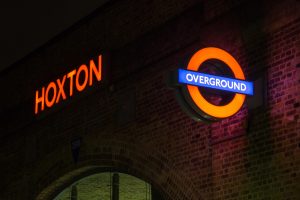Transport for London (TfL) has spent almost £30million combatting Tube noise over the last five years, City Hall data has revealed.
By Noah Vickers, Local Democracy Reporter

Transport for London (TfL) has spent almost £30million combatting Tube noise over the last five years, City Hall data has revealed.
The transport authority has invested a continual flow of funding into rail grinding works, designed to remove the bumps and abrasions on the tracks that contribute to the screeching noises.
Concerns about the levels of noise experienced by passengers in carriages and residents living close to the tracks have been repeatedly raised by London Assembly members in recent months.
In a letter to TfL last year, the Assembly’s environment committee warned that long-term exposure to Tube noise can contribute to sleep disturbance, heart disease, tinnitus, and impaired cognitive development in children.
Responding to a written question from Labour assembly member Elly Baker earlier this month, mayor Sadiq Khan said that TfL spends “approximately £115million on general rail track improvements every year, and much of this work results in reductions in rail noise”.
But on rail grinding specifically, TfL has spent £29.6million. Mr Khan said that this includes grinding “carried out to manage rail defects and maximise asset life, as well as specifically for the purpose of noise reduction”.
In recent years, he added, TfL has “achieved efficiencies in its rail grinding programme, meaning a reduction in the costs of grinding per metre”.
In their letter to TfL commissioner Andy Lord last year, the environment committee noted that ‘environmental noise’ has been recognised by the World Health Organisation as the second-largest environmental health risk in western Europe, behind air quality.
Research assessing sound pressure levels on moving Tube carriages between 2006 and 2019, published in The Laryngoscope journal, found that “passengers were routinely and consistently subjected to sound pressure levels exceeding 80 dBA, with levels sometimes reaching over 100 dBA”, the committee noted.
They added: “TfL categorise 80-100 decibels as ‘hazardous’, with 80-90 decibels comparative to the noise levels of a busy restaurant, and 90-100 decibels similar to that of power tools.
“A decibel range of over 100 decibels however is designated as ‘highly hazardous’, with readings comparative to chainsaws, rivet hammers and even an aircraft taking off.”
London contains several hotspots in which Tube noise is particularly bad. Leonie Cooper, the Labour assembly member for Merton and Wandsworth, has for example written to the mayor several times about noise levels close to South Wimbledon station.
In a written response to Ms Cooper in May this year, Mr Khan said: “Tackling Tube noise for staff, passengers and neighbours is a priority both for me and for TfL.
“The track in question is particularly complex and unique and, over the years, TfL has worked on a number of solutions to alleviate noise. TfL’s acoustician has attended an impacted property, assessed the section of track affected and is currently reviewing the data before compiling the findings.
“TfL is planning to take localised track readings to help inform its next steps. As this particular issue is unique, there are no straightforward options to trial as a mitigation, but TfL is committed to doing all it can [to] address the issue.”









